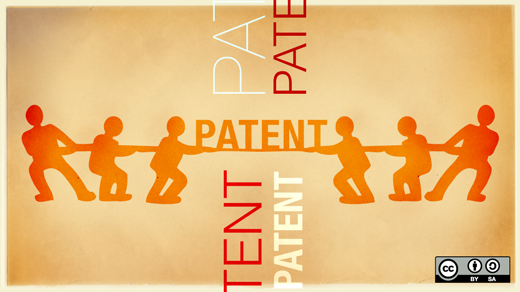The software patent debate sometimes seems awfully one-sided. Passionate opponents carefully explain that software patents hinder innovation and supporters of the status quo ignore their arguments. Meanwhile, vast sums of money that could be used for innovation are diverted by patent lawsuits of competitors seeking to block other competitors and of non-practicing entities exploiting the system. The open source community generally gets this, but much of the citizenry has no inkling that there's even a controversy.
In the last few days there have been signs of life in the debate, with reports in the mainstream media focusing on criticisms of software patents. From The Economist: "At a time when our future affluence depends so heavily on innovation, we have drifted toward a patent regime that not only fails to fulfil its justifying function, to incentivise innovation, but actively impedes innovation."
From NPR's Planet Money: "[W]e talked to a half dozen different software engineers. All of them hated the patent system, and half of them had patents in their names that they felt shouldn't have been granted. In polls, as many as 80 percent of software engineers say the patent system actually hinders innovation. It doesn't encourage them to come up with new ideas and create new products. It actually gets in their way. Many patents are so broad, engineers say, that everyone's guilty of infringement. This causes huge problems for almost anyone trying to start or grow a business on the Internet."
Meanwhile, Professory Mark Lemley recently published a fascinating article titled "The Myth of the Sole Inventor." A fundamental assumption of our patent system is that inventions are uncommon and unlikely to happen without the incentive of a patent monopoly. Lemley assembles an overwhelming body of evidence that undermines that assumption. Most new technologies are invented more or less simultaneously by persons working independently. It is an incremental process, building on preexisting technology. As Lemley puts it, "Invention appears in significant part to be a social, not an individual, phenomenon."
One by one Lemley takes on the iconic examples of pioneering inventions, including James Watt and the steam engine, Eli Whitney and the cotton gin, Samuel Morse and the telegraph, Alexander Graham Bell and the telephone, Thomas Edison and the light bulb, and the Wright brothers' airplane. In every one of those cases, there were competing inventors independently developing similar ideas at about the same time.
As Lemley shows, much innovation is not an extraordinary occurrence, but rather is commonplace, and likely to happen without the patent system. This suggests that the patent system contributes little to innovation, and may actually be a hindrance. Indeed, as Lemley's case studies indicate, the broad patents granted to famous inventors at times blocked superior competing technology and slowed progress.
This understanding of innovation is consistent with open source software development, where innovation is incremental and constant, and in no way driven by the incentive to gain a patent monopoly. Open source developers are by definition sharing their source code (that is, their inventions), and the last thing they want to do is prevent others from using the code by force of a patent. The enormous contribution that open source software makes to economic development and prosperity is by now beyond debate. The same is not true of software patents. So shouldn't we move forward with the debate?







9 Comments